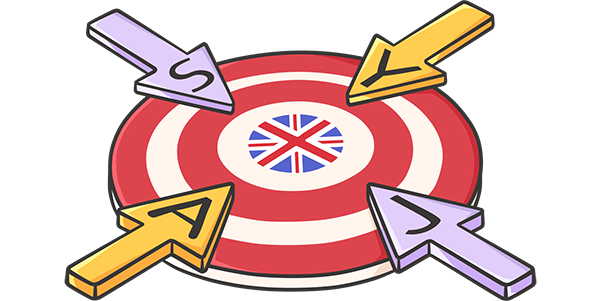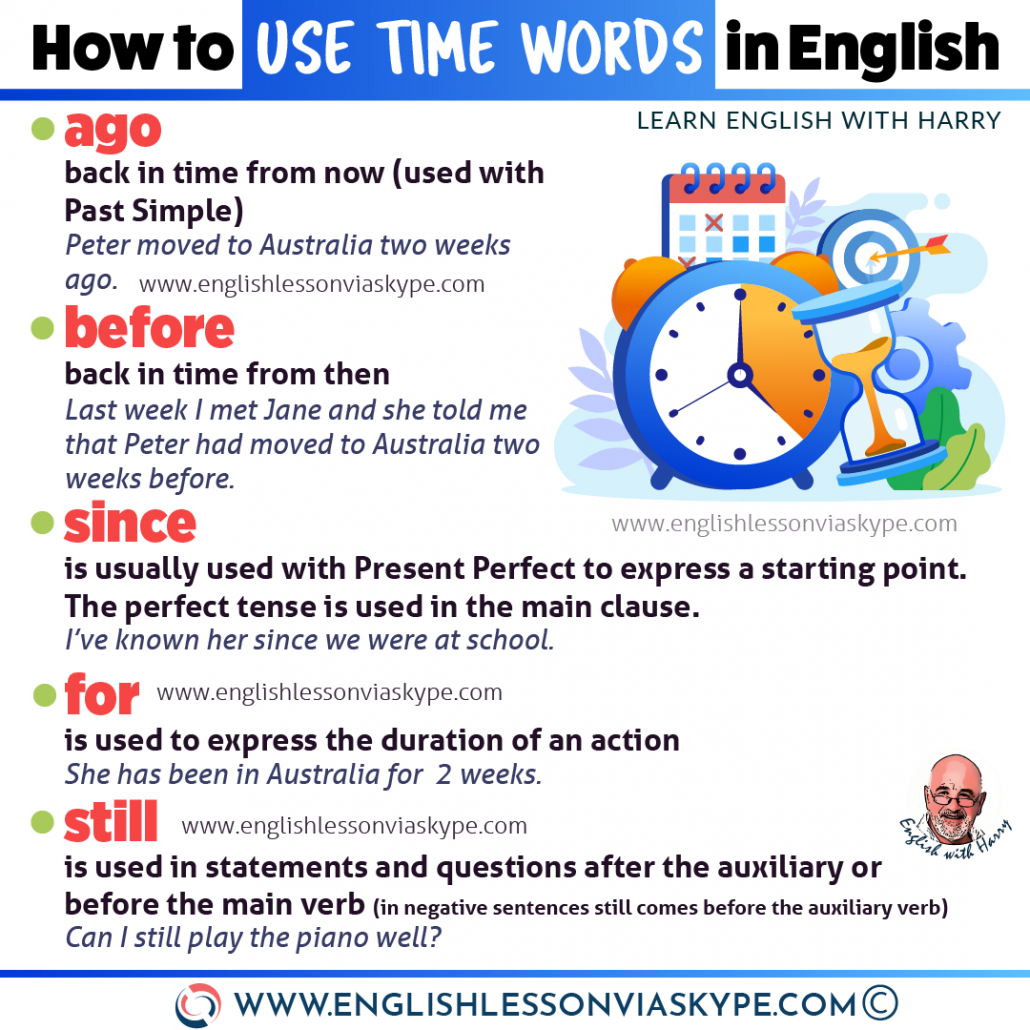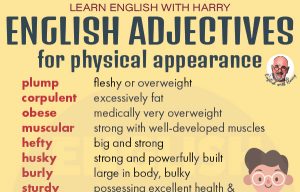В этой статье мы поможем разобраться в том, в каких случаях употребляются наречия just (только что), already (уже), yet (уже, еще), still (до сих пор) и как они связаны с Present Perfect (настоящим совершенным временем).
Зная, как правильно использовать наречия just, already, yet и still, вы сможете грамотно построить свою речь, а при чтении или просмотре видео на английском языке — лучше ориентироваться во временных рамках событий. В качестве видеопримеров покажем отрывки из «Гарри Поттера».
Just
Чаще всего just выступает словом-маркером времени Present Perfect и переводится как «только что». В основном его используют в утверждениях и ставят перед смысловым глаголом:
I have just woken up. — Я только что проснулся.
Tony has just booked the ticket. — Тони только что заказал билет.
Look! We have just fixed your camera. — Смотри! Мы только что починили твой фотоаппарат.
I’ve just seen him around. — Я его только что видел поблизости.
Just может использоваться в качестве синонима only, в таком случае just будет иметь значение «только», «лишь», «всего лишь». Если в предложении есть глагол to be, just следует сразу после него:
This cough medicine costs just 100 roubles. — Это лекарство от кашля стоит всего лишь сто рублей.
He is just a kid. — Он всего лишь ребенок.
We are just watching. — Мы только лишь смотрим.
Также just может встречаться как синоним слова exactly. В этом случае just будет переводиться как «точно», «точь-в-точь».
You act just like your father! — Ты ведешь себя точно как твой отец!
Just может выступать в качестве синонима словам simply (просто), absolutely (абсолютно), чтобы сделать акцент на утверждении:
It is just perfect! — Это просто идеально!
Можно использовать just, чтобы сделать повелительное наклонение более резким:
Just shut up! — Замолчи!
Также just можем использовать, чтобы сделать просьбу чуть более вежливой:
Could you just give me a piece of advice? — Не могли бы вы дать мне совет?
Already
Слово already чаще всего выступает маркером времени Present Perfect. В этом случае оно переводится как «уже» и стоит между вспомогательным и смысловым глаголами. Already обычно используется в утвердительных предложениях.
I’ve already seen this film. — Я уже видел этот фильм.
Debbie has already settled down in NY. — Дэбби уже обосновалась в Нью-Йорке.
They have already checked out. — Они уже выехали из отеля.
Already может означать «раньше, чем ожидалось». Употребляется в утвердительных и вопросительных предложениях.
Timmy is only 18 but he is already a head of the company. — Тимми всего лишь 18, а он уже глава компании.
Are they already here? — Они уже здесь?
Look! I can already ride a bicycle! — Смотри! Я уже умею ездить на велосипеде!
Чтобы выразить удивление, ставим already в конец предложения.
Are you moving to US already? — Ты уже переезжаешь в Соединенные Штаты?
Yet
Yet часто выступает маркером времени Present Perfect и стоит в конце предложения. В отрицательном предложении yet переводится как «еще», а в вопросительном — «уже». Давайте посмотрим на примеры английских предложений со словом yet:
Have you fed the dog yet? — Ты уже покормил собаку?
Has he cleaned up his room yet? — Он уже убрался в своей комнате?
Eddy hasn’t told me anything yet. — Эдди мне еще ничего не рассказал.
They haven’t come back yet. — Они еще не вернулись.
Yet может означать, что что-то еще не произошло, но мы ожидаем, что это произойдет в будущем. В этих случаях yet можно перевести как «пока что», «все еще».
This service is not yet available. — Эта услуга пока что недоступна.
The situation is really dangerous, but help can yet come. — Ситуация действительно опасная, но помощь все еще может прийти.
Yet встречается в утвердительных предложениях вместе с прилагательным превосходной степени и переводится как «на данный момент», «на текущее время»:
This is his best song yet! — Это его лучшая песня на данный момент!
Также yet можно перевести как «но», «однако», «несмотря на». В этом случае yet стоит в начале или середине предложения:
Yet it is terrible weather outside, we have decided to go for a walk. — Несмотря на ужасную погоду, мы решили пойти на прогулку.
Our Xbox is broken, yet we are having much fun. — Наш Xbox сломался, но мы продолжаем веселиться.
Yet может использоваться, чтобы сделать на чем-то акцент, выразить удивление или негодование. Вместе со словами more (еще), another (еще один) и again (снова) значение yet близко к even (даже, еще более).
We’ll need yet more chocolate. — Нам потребуется еще больше шоколада.
The teacher gave us yet another task! — Учитель дал нам еще одно задание!
This proves yet again that she was right. — Это еще раз доказывает, что она была права.
Still
Still означает, что нечто осталось неизменным. Это наречие используется в ситуациях, когда что-то происходит дольше, чем ожидалось. На русский чаще всего переводится как «до сих пор», «все еще».
It still drives people crazy. — Это все еще сводит людей с ума.
В этом же значении still можно встретить после модального и вспомогательного глаголов или после глагола to be.
I can still see you. — Я все еще тебя вижу.
She looked around, and they were still looking at her. — Она оглянулась, но они все еще смотрели на нее.
They are still happy. — Они по-прежнему счастливы.
С помощью still можно выразить недовольство сложившейся ситуацией, если поставить его после подлежащего в отрицательном предложении:
You still don’t understand this grammar rule! — Ты до сих пор не понимаешь это грамматическое правило!
Мы можем использовать still, когда что-то произошло, несмотря на какие-либо обстоятельства. В этом случае оно выступает синонимом фразы on the other hand (с другой стороны) и наречия nevertheless (но все же):
Marcus had overslept but still he got to the meeting on time. — Маркус проспал, но все же добрался на встречу вовремя.
I hate jogging. Still I have to do it to keep fit. — Ненавижу бегать. Но все же мне приходится это делать, чтобы держать себя в форме.
В чем же разница между still и yet? Чтобы ответить на этот вопрос, обратимся к примерам:
He is still hungry. — Он до сих пор голоден.
He hasn’t eaten yet. — Он еще не ел.
She is still crying. — Она по-прежнему плачет.
She hasn’t stopped crying yet. — Она еще не перестала плакать.
Still указывает на продолжительность действия и на то, что действие еще не закончилось. Yet же говорит о том, что ожидаемое действие еще не произошло.
Надеемся, что статья была полезной, а употребление already, just, yet и still больше не вызовет затруднений.
Предлагаем пройти небольшой тест, чтобы закрепить полученные знания.
Тест по теме «Наречия just, already, yet и still»
Если вы хотите больше упражнений на already, just, yet и still, записывайтесь на курс практической грамматики.
© 2023 englex.ru, копирование материалов возможно только при указании прямой активной ссылки на первоисточник.
Last Update: Jan 03, 2023
This is a question our experts keep getting from time to time. Now, we have got the complete detailed explanation and answer for everyone, who is interested!
Asked by: Savannah Walsh
Score: 4.4/5
(27 votes)
We use still to show that something continues up to a time in the past, present or future. It goes in front of the main verb: Even when my father was 65, he still enjoyed playing tennis. It’s past midnight but she’s still doing her homework.
When should I use still?
Still is used to say an action or situation continues to the present because it has not finished. It often refers to something happening for longer than expected. Notice the position of still before the verb or adjective. My grandfather is sixty-nine and he still works every day at the kiosk he owns.
Can you use the word still at the of a sentence?
anonymous Can I use the word «Still» at the end of the sentence? Yes, but not in the meaning you intend to.
Where do we use still?
We use still as an adverb to emphasise that something is continuing:
- They have been together for 40 years and they are still very much in love.
- We’re still waiting for our new couch to be delivered.
- She still goes to French classes every week. ( …
- He’s still studying. ( …
- I’m still hungry. (
How do you use still in a sentence?
Still sentence example
- It is still a famous school. …
- When they turned around, Alex was still on the horse. …
- She still held Jonathan’s hand. …
- When Dorothy recovered her senses they were still falling, but not so fast. …
- In fact, it was ludicrous — but it still hurt. …
- The throng stood still and waited.
33 related questions found
Can still be used as a verb?
As detailed above, ‘still’ can be an adjective, a verb, a noun or an adverb. Adjective usage: Still waters run deep. Verb usage: Still that animal before it hurts someone.
How do you use but still?
Sentence : «She went to the principal many times in this regard. But still, he didn’t pay much heed to it. » It’s perfectly natural in BE to use ‘but still’ and it means exactly what t52 said.
How do you use still not?
We can also use the expression “still not” in negative sentences and questions. It is used in a more emphatic way than “not yet” to emphasize the fact that an action has “still not” been completed. Its suggests a strong feeling of surprise or impatience.
Can I say yet still?
Both yet and still can be used in negative statements to talk about something that wasn’t true in the past and continues not to be true in the present. This is where yet and still converge. For example, the two sentences in each pair below, one with yet and one with still, mean nearly the same thing.
Do we say yet still?
Although we mainly use “yet” in negative sentences, we sometimes use the word “still.» The meaning is very similar but the tone is different. Listen to two negative sentences. One uses “yet,” while the other uses “still”: She hasn’t graduated yet.
Is not still correct?
‘Not still’ is incorrect. However, it is correct to say ‘I’m/I am still not married. ‘ if you want to make a complete sentence and also ‘I’m/I am not married yet’. Hope this helps.
Is still there or is there still?
Both places are correct. The former gives more emphasis and the latter is the usual way.
How do you use still in a question?
We use still in questions, affirmative and negative sentences to indicate that something is not finished and that we are perhaps surprised or concerned about this. Because it is emphatic, it often carries considerable word stress: Is it still raining? ~ Yes, it’s still raining.
What is but still?
MateusLee replied that ‘but still’ means ‘but anyway‘ or ‘but even so’.
Can you start a sentence with but still?
Of course, there are style guides that discourage it, but it’s perfectly acceptable to begin a sentence with “but” when writing. … By all means, start sentences with “but” from time to time, but remember that “but” also belongs after a comma.
Is stillness an adjective?
Comparatively quiet or silent; soft; gentle; low. (obsolete) Constant; continual.
Is it still a thing meaning?
When something is popular or well-known, you can call it «a thing«. For example, you can ask someone about a phrase that they used which you’ve never heard before: … Or you can use this phrase to talk about something that’s fashionable: Huge, baggy suits were kind of a thing back in those days.
How do you use still as a verb in a sentence?
The wind stilled. still somebody/something She spoke quietly to still the frightened child. His words stilled my fears.
What is the meaning of still time?
1 usually predicative motionless; stationary. 2 undisturbed or tranquil; silent and calm. 3 not sparkling or effervescent.
When to use are or is?
When deciding whether to use is or are, look at whether the noun is plural or singular. If the noun is singular, use is. If it is plural or there is more than one noun, use are. The cat is eating all of his food.
Is a lot or are a lot grammar?
«Lot» is the subject of the sentence and it is singular. «Is» goes with a singular subject, «are» goes with a plural subject. «There ARE lots» is correct because the subject «LOTS» is plural. When you say…»There IS a lot of animals»…that is correct.
Is still yet a correct English?
Note that still generally comes before the verb, while yet is usually placed at the end of the sentence.
Could still meaning?
2. adverb [ADVERB before verb] If something that has not yet happened could still happen, it is possible that it will happen. If something that has not yet happened is still to happen, it will happen at a later time.
When can I use never in a sentence?
[M] [T] I never felt this way before I met you. [M] [T] I never imagined we’d end up like this. [M] [T] Mary decided never to see him any more. [M] [T] She did her best never to think of him.
What is the meaning of “still” in English? What is the difference between “still” and “yet“? – This English lesson answers both of those questions.
“still” can be either an adjective or adverb.
“still” as an adjective
“still” describes something that is not moving. Something that is static and stays in the same position.
Examples:
Those children never stay still.
The water in the lake is very still. (calm, no waves)
Another common example as an adjective is “still drink”
This is a drink that is not fizzy. A still drink is a drink without bubbles or gas.
Examples:
Mark: Would you like a coke?
Jane: No I’d prefer a still drink please.
“still” as an adverb
“still” is also an adverb in English. More specifically, it is an adverb of time.
We use “still” to indicate and emphasise that something is continuing. A situation has NOT finished, perhaps surprisingly.
Example:
(Monday):
Mark: How are you feeling?
Jane: I have a cold.
(Tuesday):
Mark: How are you feeling today?
Jane: I still have a cold.
Position of “still” in a sentence
The position of “still” in a sentence depends on the type of verb:
If the sentence has a main verb without auxiliary verb, “still” comes immediately before it.
Example: I still watch cartoons.
If the sentence has an auxiliary / modal verb, “still” goes in the middle position between the auxiliary / modal and the main verb.
Example: He is still waiting for the bus.
Finally, if the sentence has the verb “be” as a main verb or linking verb, then “still” goes after the verb “to be“.
Example: I am still tired.
Opposite meaning of “still”
There are 3 structures which mean the opposite of “still“
“no longer” – Example: I’m no longer living in Bristol.
“not any more” – Example: I’m not living in Manchester any more.
“not any longer” – Example: I’m not living in London any longer.
“still” with negatives in the present perfect
We often use “still” with negative sentences in the present perfect to describe a situation that should have happened, but it has not happened.
The position of “still” is between the subject and the auxiliary verb “have“.
Examples:
I still haven’t found my keys.
The customer still hasn’t paid the invoice.
“still” or “yet”
We use “still” to describe a continuing situation.
Example 1:
Mark and David still play video games together.
(They continue to play video games together.)
We do not use “yet“:
Mark and David yet play video games together.
Example 2:
Mark: Is Jane still living in New York?
(Meaning: I know she was living in New York. You told me last time we spoke. Does she continue to live there? )
David: Yes. She’s still living there. She loves it.
Mark: Is Jane living in New York yet?
(Meaning: I know she wanted to live in New York. You told me last time we spoke. Has she moved there? )
David: No, she’s going to move there next year.
More English lessons
How to pass the IELTS with a band 8
Private online English lessons
Parts of speech – English grammar
Superlative adjectives
Modal verb SHOULD – form, use and meaning
List of all the lessons
Video lesson
In this lesson, you will learn when to use already, still and yet and other time words in English.
We will talk about what is the difference between STILL and YET.
We will review in detail the difference between FOR and SINCE which confuse many many ESL students.
Harry
Harry is a native English teacher with over 10 years of experience both online and in face-to-face lessons. With his extensive experience in business, he specialises in Business English lessons but happily teaches ESL students with any English learning needs.
When to use Already, Still and Yet — Time Words in English
Hi there and welcome back to Harry’s English lessons.
And if you haven’t already subscribed to Learn English with Harry YouTube channel, just press the subscribe button.
Today, I’m going to talk to you about time words. These are English expressions that we use about time.
So I go through each of them and then I’ll give you some examples and hopefully you’ll be able to understand exactly what they mean because I know they cause some people a few problems.
1️⃣ So the first one we have is AGO.
Ago is referring to back in time in the past. It’s all about back. So here we’re using the simple past in terms of verb tense.
When we talk about ago, we can say something like two weeks ago. So it’s back in time. You’re travelling back in time, like Dr Who.
So here’s an example. You meet your friend and you’re walking down the street and you’re asking them about some other friend Jane. He says:
Oh yes, Jane, she moved to Canada two weeks ago.
So he’s talking about two weeks that from the time that you met him two weeks ago.
Intermediate to Advanced English Marathon
INSANITY: doing the same thing over and over again and expecting different results.
- What you’ll learn:
- better understanding of more complex grammar structures
- advanced English vocabulary words
- British & American slang
- perfect your listening skills through practing different accents
- This marathon is for you if you’re:
- stuck at an intermediate English level
- tired of confusing explanations
- a mature student
- shy & introverted
2️⃣ The next time word I want to use is BEFORE
In our first example, when we’re using ago, we said when we spoke to Paul that Jane had moved to Canada two weeks ago.
So when you met him two weeks ago, when we use before we can use the same example:
The last time I met Paul, he had told me that Jane had moved to Canada two weeks before.
Two weeks before the date you last met Paul. So before is talking about again about history.
But we can also use before with the simple present and the simple past. Let me give you two examples.
I will leave before he comes.
Meaning I will leave the office, I will leave the meeting, I will leave home before he comes. Simple present. Okay.
Or the simple past.
He completed or did or finished his homework before he had dinner.
When to use Already, Still and Yet — Time Words in English
3️⃣ The next time word I want to use is SINCE
So this again can be a little bit confusing, but we use since with the perfect tenses present, perfect or past perfect depending on the circumstances.
So let me give you a good understanding of how we use it.
So let’s say I have been living in this particular house for 19 years. So that means today is 2019. 19 years ago when I moved in would have been the year 2000. So when I use the word since it takes me back to the past, brings me up to the present and tells me that I’ve been living here since a particular date or year.
book your trial English Lesson
4️⃣ The next time word that I have for you is FOR
Now, SINCE and FOR always get confused.
When we’re using FOR, we’re talking about duration, a period of time.
So let’s go back to my example about the house here.
Living here since the year 2000 started in the past. – It brings me up to the present.
I can say it in the exact same way by saying:
I have been living here for 19 years, for 19 years. – The duration of 19 years.
Again, it started in the past. It brings me up to the present. I have been living here for a period of 19 years.
How to Use Time Words in English
Share and help other students to improve English language skills.
5️⃣ And the next time word that I want to use is ALREADY
And here again, we use already with the perfect tenses.
It either comes in the middle of the sentence or at the end of the sentence and it tells you something that has already happened.
She had already left the party before he arrived.
– Did you post that letter for me?
– Yes, I’ve posted already. I have posted it already.
Here we use the present perfect. I have plus the past participle posted. I have posted it already and here we have already at the end of the sentence.
So you can have it in the middle. You can have it at the end, you can use it with the past perfect. And you can use it with the present perfect.
When to use Already, Still and Yet — Time Words in English
6️⃣ And the next time word then is YET
And this one is a bit different so be careful.
We only use YET with negative statements and questions
And it’s always about something that hasn’t been completed. It isn’t finished.
So you’re asking a question about whether something has done as has been done or you’re asking us making a stable as something in the negative.
Has he finished his dinner yet?
Present perfect.
And then if you want to put it into a negative statement:
He hasn’t called me yet. He hasn’t called me yet. I’m getting very worried.
So again, up to the time that you’re talking to the person, you haven’t received a phone call, so it isn’t complete that as an action that hasn’t finished. It’s a negative statement.
When to use Already, Still and Yet — Time Words in English
7️⃣ And then one I have for you is STILL
This is the last time word.
We use STILL in positive statements or we use it in questions. It comes after the auxiliary verb and before the main verb.
For example:
Are you still playing tennis? Yes. I am still playing tennis.
Okay, so we’ve looked at ago, before, since, four, yet and still.
So hopefully you’ve got a good understanding of how to use them.
And if you want to contact us, of course, you can subscribe to our channel and join me on www.englishlessonviaskype.com and subscribe, as I said, and we’ll see you soon.
improve english on a budget
Online English Courses from €7.99
More Information
You will love these English lessons
English Vocabulary
Business English Vocabulary
Phrasal Verbs
Are you still here? Great! I had hoped you would be!
We use the word still when we want to express that something is in progress now, in other words it hasn’t stopped.
“I’m still reading the blog post” (You are in the middle of reading the blog post)
“I still want to go to California” (The desire to visit California has not changed)
“She is still in school” (She is in school at the moment)
These actions are in progress at the moment or are true at the moment. They didn’t change or stop.
Moreover, still can be used in questions and negatives.
When we use still in questions or negatives it usually conveys surprise or annoyance:
“Are you still playing computer games? You need to study!”
“She still hasn’t done her homework!”
If we use still with a comparative structure it communicates that the information is surprising.
“Her English is good but her French is still better”
Note: For comparative structures like this, it is more common to use even than still.
For example: Her English is good but her French is even better









